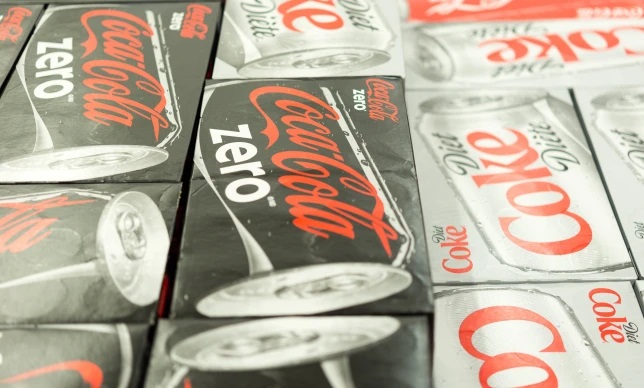
Audio By Carbonatix
The World Health Organisation (WHO) is set to declare an artificial sweetener as a possible cause of cancer.
Aspartame is used in popular products like Coca-Cola’s diet drinks and Mars Extra chewing gum.
But next month, the WHO is set to list it as ‘possibly carcinogenic to humans’, according to two sources with knowledge of the process.
The ruling won’t take into account how much aspartame someone can consume safely – that advice comes separately from a WHO expert committee on food additives.
The organisation’s committee on additives is reviewing aspartame use this year, and will announce its findings on July 14, the same day the decision on whether to declare it as carcinogenic is published.
A spokesman for the International Agency for Research on Cancer (IARC), the WHO’s dedicated cancer research arm which has been looking into the sweetener, said its findings were ‘confidential’ until July.
The additives committee ‘conducts risk assessment, which determines the probability of a specific type of harm to occur under certain conditions and levels of exposure’.
Since 1981,the additives committee has said aspartame is safe to consume within daily limits.


For example, an adult weighing 60 kg (132 pounds) would have to drink between 12 and 36 cans of diet soda – depending on the amount of aspartame in the beverage – every day to be at risk.
This view has been widely shared by national regulators, including in the United States and Europe.
The IARC’s rulings can have a huge impact – but have also sparked criticism over warnings about hard-to-avoid substances and situations.
It previously classed working overnight and eating red meat as ‘probably cancer-causing’, and using mobile phones as ‘possibly cancer-causing’.
The International Sweeteners Association has criticised the IARC’s decision-making, saying: ‘IARC is not a food safety body and their review of aspartame is not scientifically comprehensive and is based heavily on widely discredited research.’
The International Council of Beverages Associations’ executive director Kate Loatman said public health authorities should be ‘deeply concerned’ by the ‘leaked opinion’, and also warned it ‘could needlessly mislead consumers into consuming more sugar rather than choosing safe no- and low-sugar options’.
Sources close to the IARC say classing aspartame as a possible carcinogen should motivate more research into the sweetener.
Last month the WHO advised people not to use non-sugar sweeteners while attempting to lose weight, causing uproar in the food industry.
Latest Stories
-
Government to restructure COCOBOD’s GH¢5.8bn debt, tighten oversight
5 minutes -
JOY FM rolls out “Safari Experience” — a refreshing Ghana Month escape into nature, culture and connection
2 hours -
Ghana loses over GH¢4.5bn annually to traffic congestion, new study on urban mobility shows
2 hours -
ADB unveils new corporate cloth, determines to dominate industry
2 hours -
Peak Milk extends Ramadan support following courtesy visit to national Chief Imam
2 hours -
No solo bid for Ken Agyapong — Joojo Rocky Obeng dismisses ‘third force’ calls as politically ridiculous
2 hours -
Today’s Front pages: Friday, February 13, 2026
3 hours -
5 arrested for open defecation at Osu Cemetery
3 hours -
A Home that Travels: How the Diaspora carries Pan-Africanism across borders
3 hours -
Obituary: Hon. Stanley Basil Bade Carboo
3 hours -
Government to absorb COCOBOD’s $150m losses as Cabinet directs immediate cocoa purchases – Finance Ministry
3 hours -
Mpraeso MP demands immediate probe and arrest over alleged exploitation of young Ghanaian women
3 hours -
‘No bed syndrome,’ and how a hit-and-run victim was refused emergency care by Ridge, Police, Korle Bu hospitals for close to 3 hours before he died
4 hours -
Give Love a second chance on Valentine’s Day – Counsellor Perfect
4 hours -
GSS generates the numbers that drive national development – Government Statistician Dr Iddrisu
4 hours

